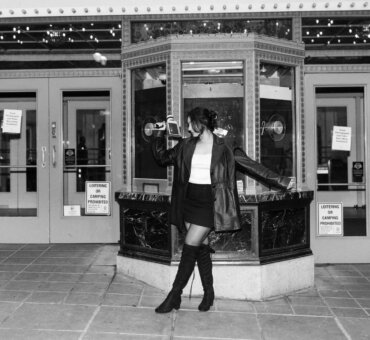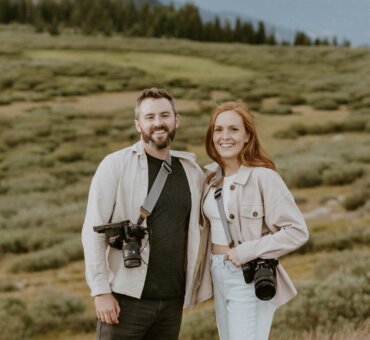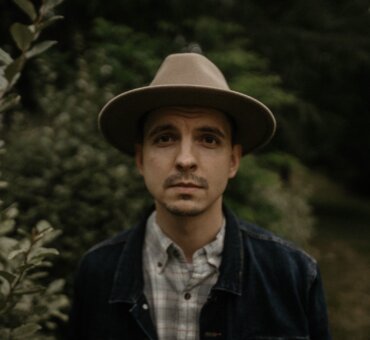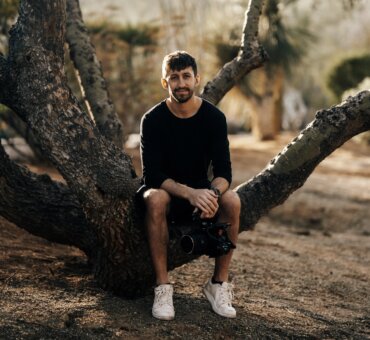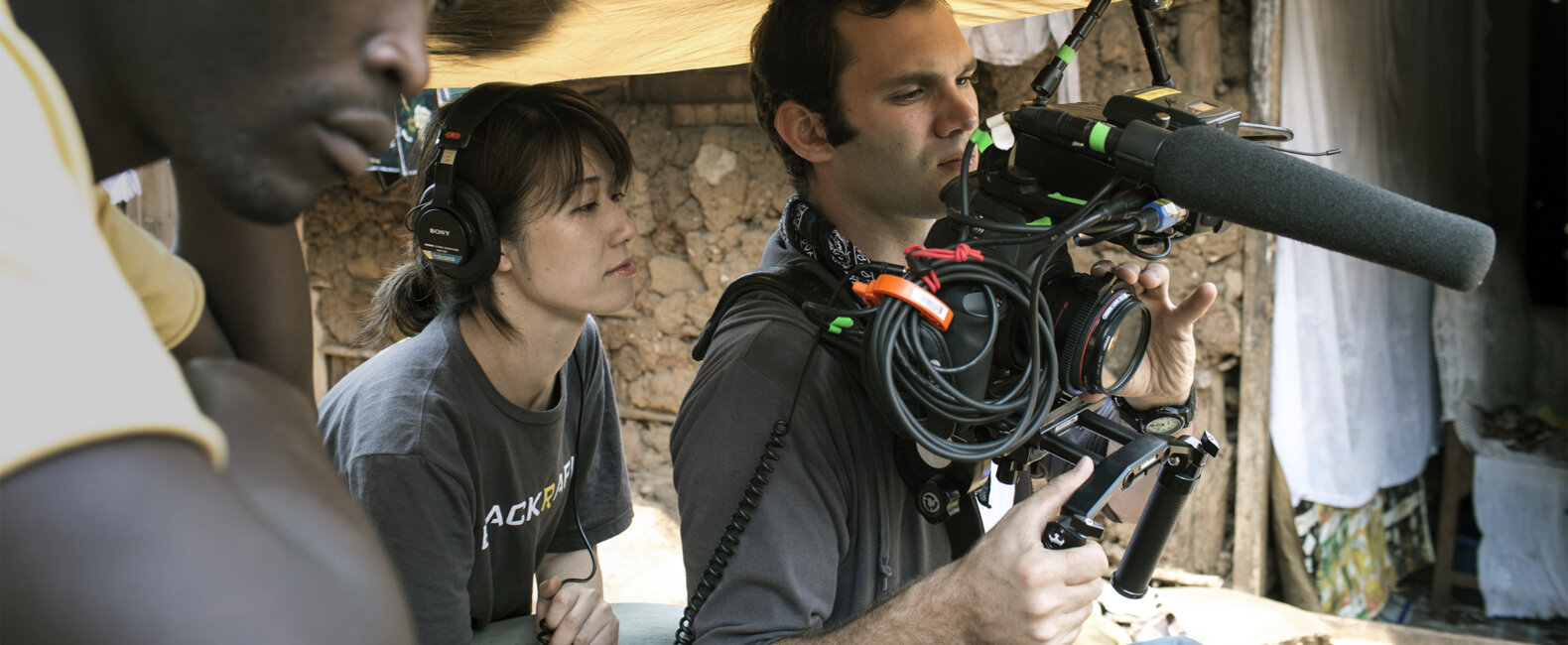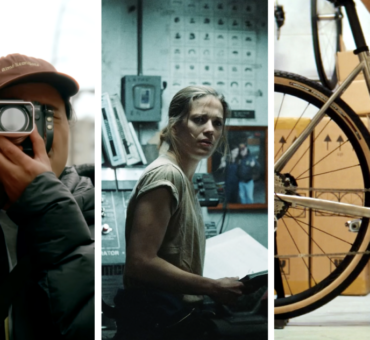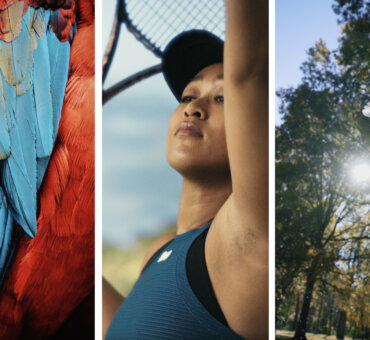Hazuki Aikawa makes films that might make you uncomfortable. They tackle subjects that confront norms and may make you squirm in your seat. When a tsunami hit Japan in 2011, she made a series of experimental films encouraging people to listen to the sounds of the carnage. Her work is always provocative. And for good reason. Hazuki is not only challenging our preconceptions and biases ⎯ she’s also challenging her own.
“A project is usually a process of finding out what you really believe about a subject,” she told us. “I’m open to flipping everything upside down if it needs to be. I start with an idea, but that can be thrown out the window — and it usually is.”
Hazuki’s first film project (a documentary for Fuji Television in Japan) went traumatically awry, and she nearly swore off filmmaking for good. But after taking a detour into biology, relocating to the U.S., and getting a graduate degree from NYU in biomedical journalism, Hazuki (age 29 at this point) rekindled her interest in film via night courses. Hazuki Aikawa has been making films full time since 2009.
We spoke with her from her apartment in Brooklyn, where she lives with her husband and son.
MB: In your short film Upgrade, you take a pretty dark stance on how technology controls our lives. Are science and technology common inspirations for you?
Often, yes. That film was a collaboration between Andrey Alistratov and me. We’re always talking about technology and how it’s so awesome. But because it’s so awesome, it’s also taking over. It’s taking our humanity from us. The concept was essentially, What happens when we become completely inseparable from our smartphones? So yes, I think technology can be a source of inspiration for me. There is a lot in the pipeline that has to do with science.
You think technology is robbing us of our humanity?
Oh yes, definitely. Our attachments to people and our relationships are so thin right now. My childhood was very different from what I see today. I have teenage relatives who’ve grown up entirely in the cell phone generation. It’s a generation of free talk. They can talk to whomever they want, whenever they want. There is no adult perspective. They come up with their own solutions. It’s a battle royale out there. It’s the Lord of the Flies. There is no social hierarchy. It’s all peers, all the time. And that’s becoming true for me too. Instead of asking people questions, I look up answers on Wikipedia. There is an inverse relationship between how much information we have access to and how deep our relationships are.
What do you think the implications are for filmmakers?
I don’t know if I have an answer for that yet. Film is a powerful way to make a point, but what point should we be making? Upgrade is a very sarcastic comment about technology. But it’s also a contradiction: We’re using technology to warn against technology.
A lot of people probably watched the film on their phone.
I’m sure they did. And it spread through social media. We never would have been able to get the film out there if it weren’t for computers and phones. As filmmakers, we are very reliant on technology, and yet we should be leery of it. It’s a confusing place to be.

Your production company’s [Noka Films] mission statement is to make films that challenge preconception and bias. What’s the idea behind that?
It seems to be the motivation behind everything we make. When the tsunami hit Japan, we made a film series called Listen. They are 60-second social-experimental films. We went to Union Square in Manhattan, which is very crowded, and we asked people to listen to the sounds of the tsunami. It was very interesting. Before people listened, we asked if they wanted to help people who’d experienced a disaster in Japan. Most of them were like, “Nah.” Then we asked them if they wanted to listen to the disaster, and their curiosity got the best of them. Once they heard it, they were able to put themselves in the shoes of the victims. We had some very emotional conversations afterward. It challenged their perception of the disaster.
Do you think it was more powerful for people to hear the tsunami than see it?
Yes. That was the point we were trying to make. There were so many videos of the tsunami being televised back then, and they just went on and on. CNN was covering it a lot. It was similar to 9/11 when the same videos were on repeat, and they stopped piquing people’s interest. When you take away the video, people hear things they otherwise would have tuned out. Without any visual input, they envision themselves there. It was very interesting to watch people’s faces.
You’re trying to challenge people?
There is always some preconception or bias. Whatever it is, I always go the other way. I feel like, “Wait a second, there must be a different angle to this.” I’m not trying to make some opposing argument or point. I’m just introducing a different direction. I’m not interested in repeating what the masses say — mostly because there are people who’ve stated their point of view very eloquently. I don’t want to try to say it again.
A film project is usually a process of finding out what you really believe about a subject. I’m open to flipping everything upside down if it needs to be. I start with an idea, but that can be thrown out the window — and it usually is.
I believe people can write anything they want. They just need to be aware of the consequences.
Are there any subjects that are off-limits to a filmmaker? Or is there a way to approach any subject?
I don’t believe anything is off limits. There are no limits. But as a rule for myself, I never want to make something that’s ignorant. I never want to offend people simply because I’m ignorant about a subject. It would also be very hard for me to make a film if I didn’t understand my main character. For example, the main character of Reflection [her recently released short film] is not the gender nonconforming boy. It’s the mother. I can relate to her because I’m also a mother. That’s why I don’t consider it an LGBT film.
On the other hand, I don’t feel I’m personally savvy enough about the black community to make a meaningful film about it. Which isn’t to say I wouldn’t use black characters, but I couldn’t put that community center stage and do it justice. I know people who could though, like my friend Keith Miller. Most of Keith’s protagonists are black. I can see how someone might not understand that choice since Keith is a white man. But he sees what’s in front of him. He’s living it. And he’s confident in his perspective. He has every right to make those films. But if you’re going to do that, then you have to really know what you’re doing. If I watched an inaccurate film about Japanese culture, I’d be bitching about it the whole way through.
There’s an adage that says, “Write what you know.” Do you think that’s true?
No. I don’t think people have to write what they know. I believe people can write anything they want. They just need to be aware of the consequences.




































































